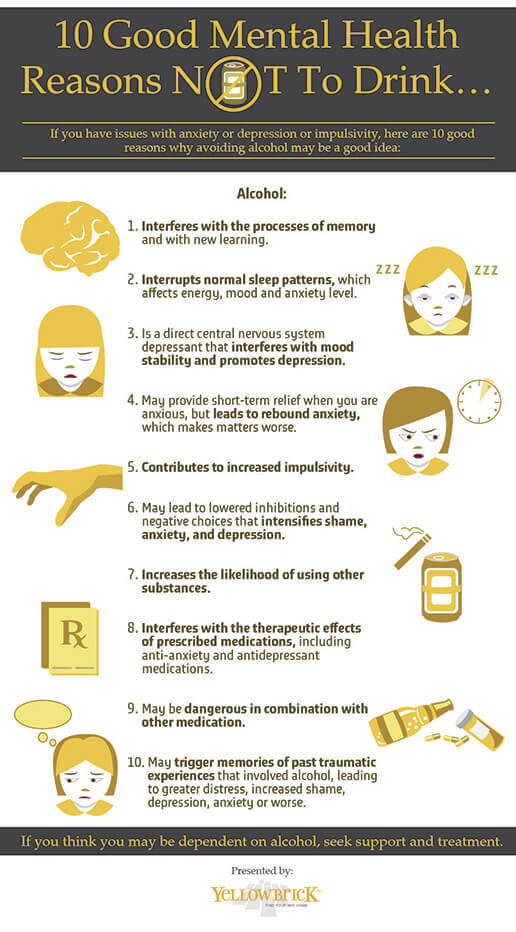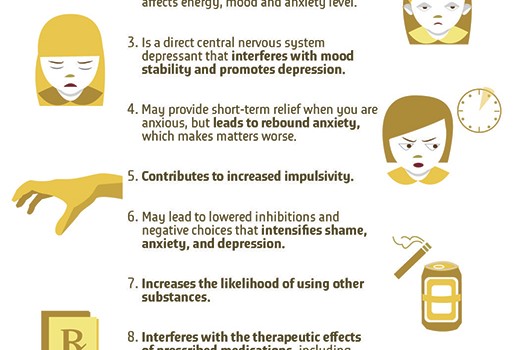Throughout the course of rehab, as an alcoholic adapts to a sober lifestyle, mental wellness gradually increases. Social and emotional health benefits go along with abstaining from alcohol. Dr. Jesse Viner, Founder and Executive Medical Director at Yellowbrick advises his clients to completely cut out alcohol in order to feel their emotional best. Dr. Viner breaks down the affects of alcohol on mental health into simple, understandable terms with straightforward talking points in the guide, Ten Mental Health Reasons Not to Drink. A reminder of the social and emotional consequences connected to consumption, Ten Mental Health Reasons Not to Drink highlights how the body and mind function differently after drinking.
Alcohol impacts how the brain functions. It is important to understand how the brain reacts to alcohol. For example, while under the influence, the ability to form memories may be reduced as well as the capacity to learn. Sleeping a full, restorative eight hours is nearly impossible as the body fights to metabolize alcohol. Alcohol easily takes control of the central nervous system, leaving a drinker feeling emotionally unstable. Regular alcohol consumption can severely alter brain patterns, leading to a serious condition of depression.
Staying away from alcohol is a great choice when you are trying to reach your emotional best. Instead of experiencing the mood swings, anxiety, or depression that alcohol can bring about, sobriety offers emotional stability. The result of sobriety often includes making less impulsive, healthier, more productive decisions, like abstaining from other substances. When people stop drinking, they are able to take control of their inhibitions. By living soberly, you won’t have to face the feelings of shame, guilt, or anxiety that accompany a poor decision made under the influence.
If you or somebody you know has a drinking problem, please seek professional help.

Mental Health reasons not to drink


